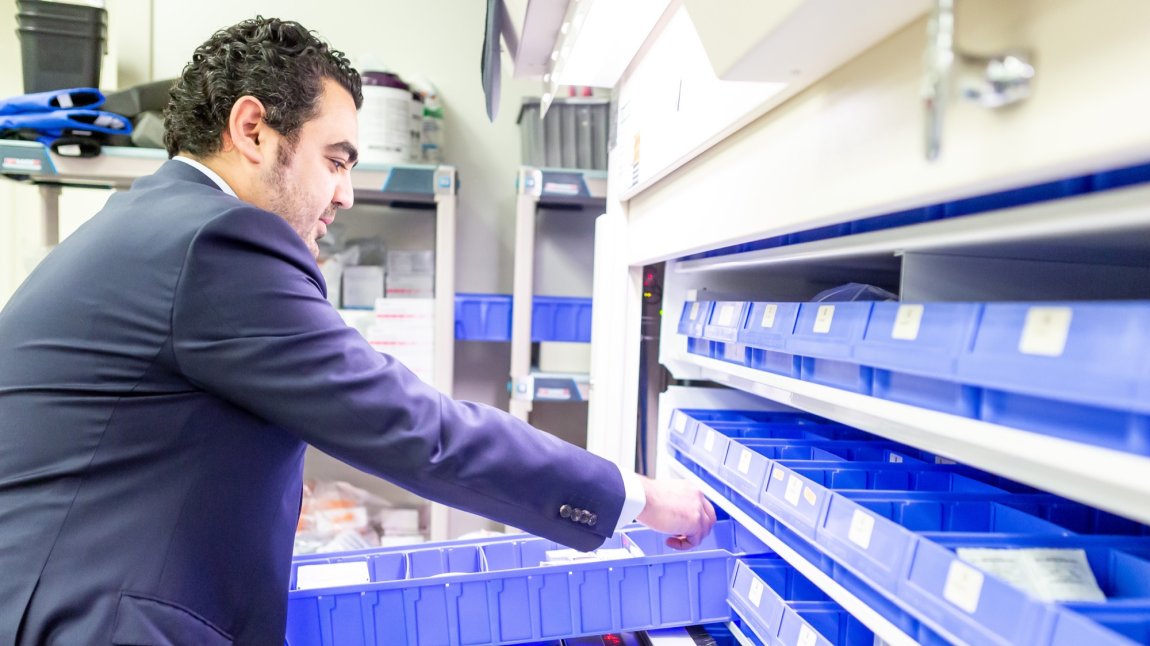Walking through the pharmacy in the basement of the Martin Luther King Community Healthcare (MLKCH), Nubar Petikyan stops to point out a patch of empty floor space in front of orderly shelves of pharmaceuticals.
“That’s where we had our ‘COVID mountain,’” says Nubar, the pharmacy’s manager. The mountain he recalls was a stockpile of the many drugs necessary to help patients fight for their lives during the winter surge in cases—remdesivir, propofol, many others.
“At the time, the entire hospital was a critical care unit,” he says. With patient volume almost doubled and hospital staff seeing greater numbers of severe illnesses, the pharmacy’s stockpile was just one more sign of the extraordinary times.
Nubar, though, recalls that period as one that reaffirmed his calling not only to working in critical care settings, but to the community of South LA.
Born in Armenia as the Soviet Union collapsed, Nubar immigrated with his parents to the Hollywood neighborhood of Los Angeles when he was just two years old. An only child, he grew up in a tight-knit Armenian community and was close with his grandparents.
His interest in science and chemistry was lifelong, so the decision to pursue pharmacy came naturally. “It was either going to be a PhD in chemistry or a PharmD. I chose pharmacy because I wanted to be directly involved with patient care,” says Nubar.
After graduate studies in San Diego, he found a way to return to his hometown as a pharmacy intern at MLKCH in May 2015, shortly before the hospital opened to patients. South Los Angeles, with its many immigrant families, reminded him of where he’d grown up. He began as the ICU pharmacist, working closely with doctors and nurses to keep the most critically ill and injured patients alive.
“It’s such a high-pressure, high-stakes environment. You develop a real trust with the people you’re working with. It’s like a family,” says Nubar.
